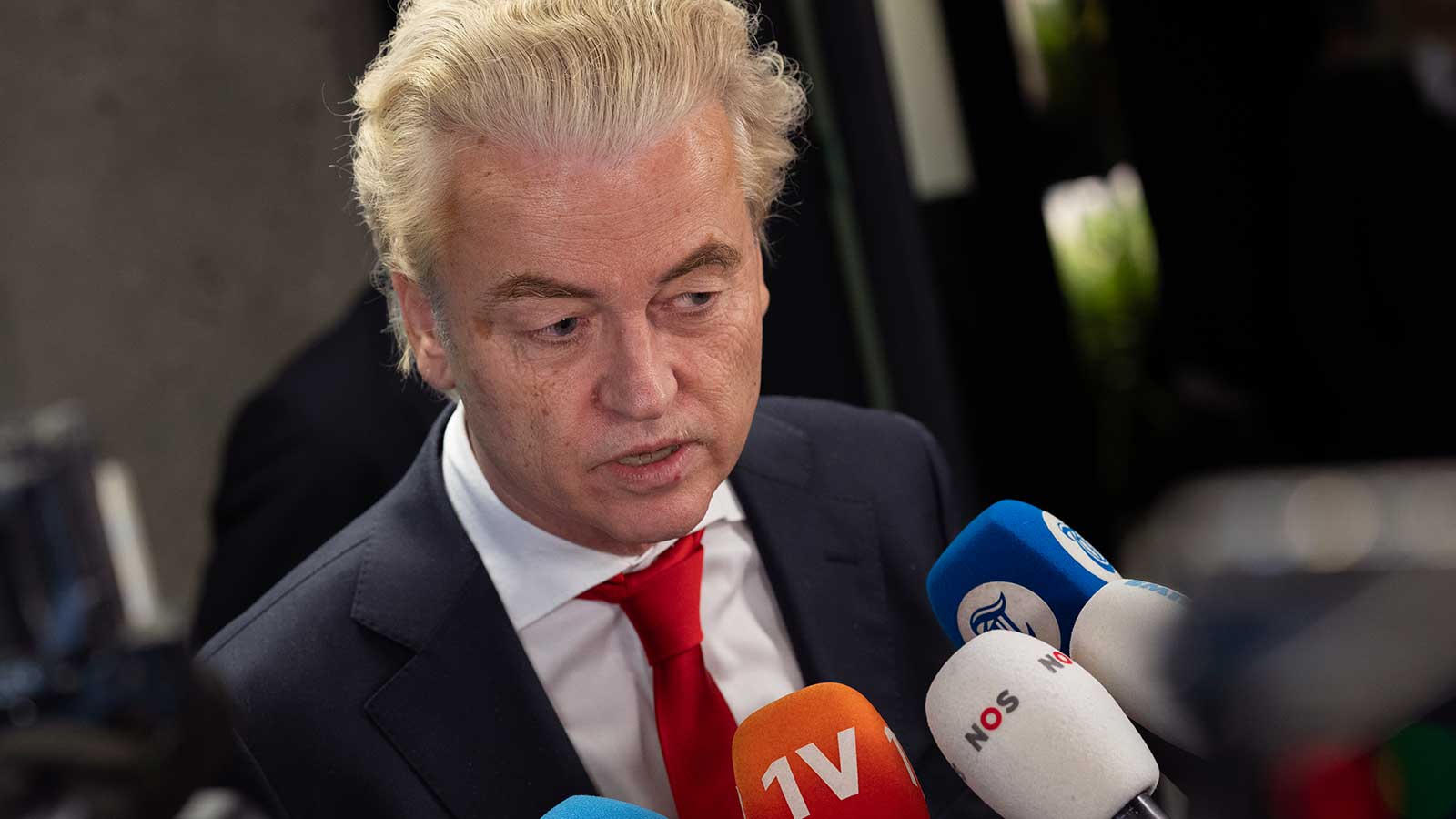The Dutch coalition government has agreed on new measures to reform the Netherlands’ asylum policy following intense negotiations by party leaders.
In a high-stakes meeting that stretched over eight hours on Thursday, the leaders of the PVV, VVD, NSC, and BBB parties finally reached a consensus on the revisions initially proposed by the PVV’s party leader Geert Wilders.
“We had a lot to discuss, but we have reached an agreement,” said VVD leader Dilan Yeşilgöz after the talks in the Catshuis, the official residence of the Dutch prime minister.
“We have grown together,” added the NSC’s Nicolien van Vroonhoven, reflecting on the coalition’s efforts to overcome their differences.
Initial reporting on the specifics of the reforms has been scarce; however, it is understood the full plan will be revealed after a cabinet meeting scheduled for Friday.
Earlier this week, Wilders revealed that attempts to persuade coalition partners to declare a state of emergency, which would have allowed the government to implement radical asylum reforms without parliamentary oversight, had failed, but added that he was content with the proposals still on the table.
Dutch media reported that these included stricter rules on asylum seekers at their core. According to leaks, leaders had been discussing plans to slash the duration of asylum permits to a maximum of three years, restricting family unification laws, revoking the legal right to housing for asylum applicants, and making it easier to revoke residency for foreign criminals.
Additionally, parts of Syria might be designated as safe zones, potentially allowing asylum seekers and refugees from those areas to be returned.
Caroline van der Plas, leader of BBB, called the outcome “a very good evening” and said her party could live with the results. PVV leader Geert Wilders echoed the sentiment, confirming that the parties had found common ground.
With growing public concern over rising asylum numbers, the policies could mark a significant turning point for the Netherlands.
Last week, Dutch government officials confirmed plans were being considered to send rejected asylum seekers to Uganda, following in the footsteps of the former British government’s Rwanda plan and Italy’s offshore processing centers established in Albania.
“It’s important for the cabinet that rejected asylum seekers return to their country of origin. And that’s where it sometimes stalls,” she told the NOS broadcaster. Uganda is a hospitable country with which we have good relations.”






